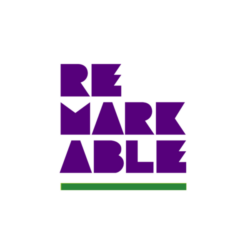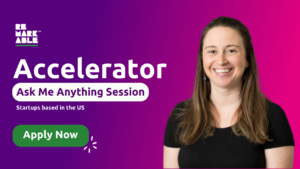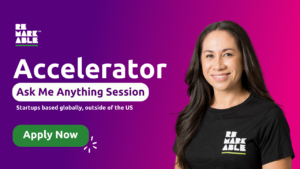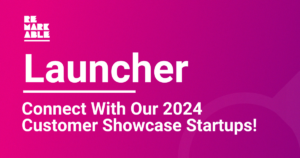Transcript
[00:00] Viv
We would like to acknowledge the traditional owners of the lands on which we record this podcast, the Gadigal people. This is their land, never ceded, always sacred and pay respects to the elders past, present, and emerging of this place.
[00:14] Viv
Before we jump in, would you mind just giving a visual description of yourself and the setting that you’re in?
[00:20] Srin
Yep, sure so my name’s Srin I am dialing in from home, a man of Indian ethnic heritage wearing glasses, with a headrest behind me.
[00:30] Viv
For people who maybe don’t know who you are and the things you’ve achieved, would you mind giving a description of exactly what it is you do and how you got to this point in your life?
[00:40] Srin
Started off life professionally as a lawyer. I worked as a mergers and acquisitions guy in the city of London for a number of years. I decided that it wasn’t quite for me and so I ended up going back to university again, did an MBA and while I was on the MBA I started to learn to code and build web apps and whatnot. And so the next kind of chapter of my life was very much around building software, building applications, online products and that ended up in the world of co-founding Accomable. Accomable was a travel platform for disabled people to find accommodation that worked for them and that ended up being acquired by Airbnb in 2017 and I worked for Airbnb in California for a number of years. Oh, yeah I forgot to mention, I’m based in London. And so it was a really huge move for me going from London to California, but moved back to London just before the pandemic and yeah nowadays I work with an old friend of mine who’s also the sort of the lead engineer CTO at Accomable we run a generative AI consulting studio that we’ve done for a number of years now and then on the side I dabble bit as an investor as well.
[02:04] Viv
So where did this idea for Accomable start?
[02:08] Srin
The start of it, like with most things, I think it’s a slow burn and quite organic. So for me, the initial thoughts around better accessibility and travel and how one can use tech to do it better, I teamed up with my friend Martin to create a magazine around disability and lifestyle. When we were just shooting ideas and just thinking about ‘ oh, what could we do to better share knowledge about our experiences traveling?’ We ended up starting this sort of, this magazine just hacked together off WordPress and that then started its own flywheel. Like we had a lot of people wanting to share their travel experiences and we were seeing the same things again and again, like people were booking somewhere, it was difficult, things weren’t going to plan, or they were finding that established sites just provided really bad information. And so over the course of several years, we were just, getting more cemented data points that this is a real need. And I had left my job, I was working, kind of trying to build up my web development skills and that kinda organically kind of evolved into, ”okay let’s try and build something in this area and see what happens.”
[03:24] Viv
An accident, I think is what you’ve referenced Accomable in the idea of.
[03:28] Srin
An intentional accident.
[03:32] Viv
And in creating it, did it open up a world of travel and vacation to you? Did it inspire that?
[03:39] Srin
Completely because in the first, especially after that trip in 2010, it gave me the confidence to go do more travel stuff. Yeah, I booked more trips, I’d gone to do more things, explored more places, and then even when we were building Accomable, a lot of times we would go out and visit places and build on the journey. So for those first few months, I would often stay with some of our hosts and get feedback on the product and try and turn that product feedback around really quickly to improve it. And that sort of really intense cycle of development was very much based around being able to travel and explore.
[04:17] Viv
And how much did your coding and law background play into the development of Accomable?
[04:24] Srin
Interesting question, I think the law background, probably later on when we were dealing more sort of things on the acquisition side, having been an M&A guy once upon a time, I think definitely gave a bit more familiarity to the situation, albeit it’s still a really fraught challenge. The coding, like only at the core, was essential. Like it would’ve been really hard to get to square one without the ability within a team just to build things ourselves quickly and get stuff up and running. I am very grateful that I was able to find the resources and the support back in the early days to learn to code. And whenever I meet founders and entrepreneurs these days, if they want to do something in tech, I think you know life is infinitely easier if someone in the founding team can build a product.
[05:22] Viv
And at what point did the conversation between you and Airbnb start?
[05:27] Srin
Yeah, so the conversation started around the summer of 2017. So again it didn’t start very much with oh, ‘acquisition and whatnot’ in mind, I think again, it organically developed from a series of related conversations. From 2015 to 2017, the site had grown steadily and it was doing well and we were getting lots of demand, but we had some major constraints. So one constraint was we didn’t have enough supply to fill the demand we had in terms of property requirements. Also, we needed just a huge amount more resources to scale and I had a bit of a meeting with my investors in early 2017. We said, okay, we’re gonna do a bit of a two track process where we will A, try to raise like a big round of funding, but B, we’ll also try and speak to other platforms in the travel industry that have built that infrastructure, that have the resources to see whether this could actually be an investment opportunity for one of these platforms and so one thing led to another and we were introduced to Airbnb. It first started off with me pitching them for an investment, but then the conversation that evolved actually rather than investment, we would rather acquire Accomable and have you and the team work for Airbnb and build out what you’re doing at Accomable within Airbnb.
[06:54] Viv
And when you were in California working at or with Airbnb, was they based in Silicon Valley?
[07:01] Srin
Yeah, effectively. So if you think Silicon Valley as a concept begins with sort of San Francisco on the northern side and goes right down towards San Jose. So you got this sort of narrow peninsula of land that I guess becomes Silicon Valley.
[07:17] Viv
I’m just curious to know how accessible was that experience?
[07:21] Srin
Mixed. So I think some things in America are great, because of the ADA and the fact that it’s been around longer than most other sort of accessibility pieces of legislation around the world. It meant that very rarely did I ever have to call up a restaurant or a bar and say ‘ Hey, can I get in there?’ and I enjoyed that luxury and not having to think about whether somewhere was accessible or not. So like here in the UK most times if I’m going out somewhere, I’ll have to do a bit of homework to check if I can get in. Where yeah, like in the Bay Area it was lovely to not have to think about that. So I think in terms of physical accessibility, things were much better. I think where it is much harder for disabled people in the US is that there aren’t the same systems of social support, like social welfare supports as you do find in Europe or in other parts of the world, again, I can’t comment on it everywhere, but in the UK there were systems in place to make sure that I had care funding from the states. If you are hiring disabled people, we have really great programs like Access to Work to help employers address some of the additional costs that come with disability. So there were just more sources of support that you get from a governmental world that just is non-existent in the US. The reality is I don’t know if I’ll be able to do what I did in the UK for most of my life I had care support from the state that allowed me to live independently and then my parents could go out on work and I wasn’t relying on family to do my day to day care. And there isn’t that same level of equivalent support in the US. So I think on the flip side, things are easier in terms of physical accessibility, but then I think are harder on the other side in terms of the kind of the vacuum of support that some disabled people in other countries get from the state.
[09:22] Viv
Do you have an opinion about the future of investment for the disability tech startup space?
[09:26] Srin
Yeah, I think there are massive deficiencies at the moment in terms of capital and I don’t just mean angel capital, but like real kind of institutional growth capital that can help take ideas from simple prototype products that may have a few people using it to like real kinds of products at scale. And so I think there is just a big need for greater institutional capital. There is a massive need, hopefully for governmental types of bodies to be more proactive and move faster in terms of helping reimburse the purchasing of some products. I think as we all know, the disabled community often is disadvantaged economically, and I think it’s unfair and to always put the burden on disabled people to personally have to pay for certain new innovations and items. And I think there has to be much quicker roots to mark where if someone comes up with an amazing new assistive technology device, there should be a really quick channel where the founders can help their customers get said purchase reimbursed by a governmental authority. And that then helps build up the market, helps build up the market opportunity, and then helps make something far easier for investors to get in. So I think there are massive structural issues at the moment with the disability market and I think it’s institutions stepping into that marketplace to increase buying power, that I think then will help more investment come in and hopefully more innovation come into the market.
[11:00] Viv
We like to ask our guests to leave them with a Remarkable Insight, and that might be a piece of advice or something to think about. What’s something that you would want people to ponder on after this?
[11:16] Srin
Things can be done and really tough things can be done and businesses can be built for the disability world that can really, I hope, have a positive impact on people’s lives. But I think it’s also accepting that like as much as it’s a fascinating journey it is a tough journey like building a business. I tell most people building a business is the hardest thing one can embark on. It is tough. I find it the most enjoyable thing, but it is also incredibly tough and exhausting. But I think the fact that it can be done and you can have a really positive impact on people’s lives is what makes it worthwhile.
[12:00] Viv
Thank you to our guest, and hopefully you found your own Remarkable Moment. Make sure you subscribe to the podcast and follow our Instagram @remarkable_tech for unheard moments from this episode. Talk with you all on the next one.
Learn more about Srin at his website srinmadipalli.com.






